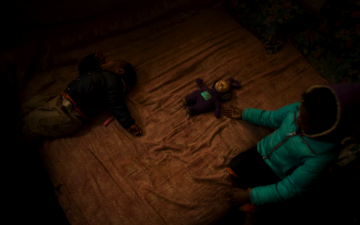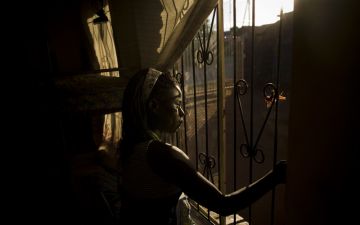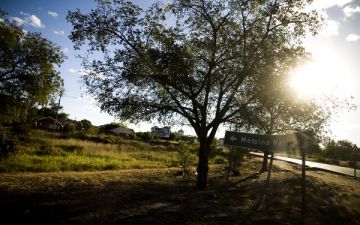When South Africa began accepting asylum applications in the 1990s, the volume of claimants -- people feeling war, environmental crises, economic collapse and poverty from throughout the continent -- quickly overwhelmed the country. South Africa receives more applications for asylum than any country in the world; the 200,000 claims submitted in 2008 accounted for a quarter of the global total. But those crossing the border often face poverty, homelessness, and xenophobic violence once they arrive.
As thousands of global tourists visited South Africa for the 2010 World Cup these other foreigners found themselves in an ever more precarious position.
Attacks on non-nationals are common and repercussions are paltry. A harsh outbreak of xenophobic violence in May 2008 killed more than 60 and displaced upwards of 150,000. Many of these displaced sought security in crowded slums and makeshift urban camps where they live without running water or electricity.
Beyond xenophobia, these attacks were a result of several things. During the apartheid period of government-enforced racial discrimination people were told explicitly where they could and could not go; some of that sense of territory has prevailed in post-apartheid South Africa. Competition for resources is also a major issue. With so many newcomers in search of jobs and housing, locals feel threatened and frustrated -- and bitter that for many the promise of those same basic rights at the time of independence has gone unfulfilled.
Susana Ferreira and Dominic Nahr capture portraits of these informal refugee settlements and the troubled border regions, assessing anti-foreigner sentiment at a time when South Africa welcomes the globe.




